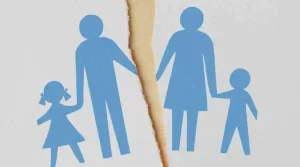For over a year, the Paducah Family Law Company has served our divorce and family law clients, giving tremendous and practical guidance to those in need. We have extended our legal services to include estate planning for new and current customers. There is significant overlap in the legal areas of divorce and estate planning. We are frequently asked about the legal inheritance consequences of second marriages: what happens to the inheritance rights of the ‘first-family’ children when an ex-spouse remarries and has children with a new spouse?
This scenario is common in real-life events, such as wealthy families battling over the estate of a patriarch or matriarch who had children with more than one marriage. But, regardless of socioeconomic or famous position, this situation may play out in various ways in families. Many marriages with children terminate in divorce, and parents often remarry, leaving their children to grow up in mixed homes. The new stepparent may even have children. The presence of stepchildren, stepsiblings, and stepgrandchildren has become the norm.
With blended families, new practicalities of merging children, parents, grandkids, and other essential family members into a new unit become critical to the healthy integration and success of the newly mixed families. Freshly divorced parents now share parenting time, child support duties, school choices, and holidays with their former spouse, and freshly divorced parents must try to build a new normal in which their children may be supported, loved, and flourish.
So what happens legally when divorced parents remarry? First, there is a new legal contract: new spouses have further legal rights to spousal benefits, including inheritance, agency (or caretaking and decision-making) in the case of incapacity, and prospective financial control. Even if you try to disinherit your spouse via a formal instrument such as a will or trust, your spouse has the right to inherit from you in Colorado. It is a legal entitlement known as Spousal Elective Share that may be enforced in court.
The effects of a second (or subsequent marriage) may be insignificant and not dire: families mix, money, houses, and assets are amalgamated, and a new and, ideally, prosperous family unit is born. But what if one spouse’s big money is included in the equation? Jane, for example, comes from an affluent family, and her father left her well-off. Jane is divorced from Frank, with whom she has three children: Joe, Mary, and Tony. Jane remarries Harry. Harry has three children from a previous marriage. Joe, Mary, and Tony are justified to be afraid that Harry (and hence his offspring) would inherit all of Jane’s riches, leaving them with nothing. Jane must make a solid estate plan to ensure her children get nothing if she dies before Harry. Careful planning may enable Jane’s family fortune to remain in her original family and offer inheritances to her father’s grandkids, Joe, Mary, and Tony, as well as their offspring. Jane may also support Harry for the rest of his life (using a spousal maintenance trust) and leave her fortune to anyone she chooses, such as her biological children.
Paducah Family Law can assist you with your estate planning requirements and provide solid guidance and legal services to help you safeguard your family’s wealth during divorce and remarriage. Please contact us, and we will help you!



